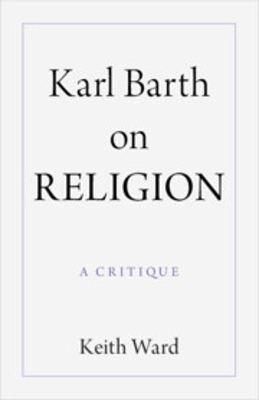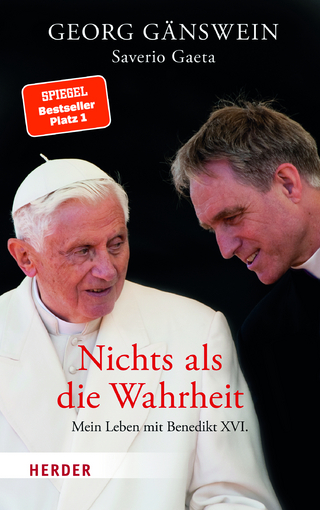
Karl Barth on Religion
A Critique
Seiten
2024
Cambridge University Press (Verlag)
978-1-009-55541-8 (ISBN)
Cambridge University Press (Verlag)
978-1-009-55541-8 (ISBN)
In this study, Keith Ward offers a detailed critique of Barth's views on religion and revelation as articulated in Church Dogmatics. Against Barth's definition of religions as self-centred, wilful, and arbitrary human constructions, Ward offers a defence of world religions as a God-inspired search for and insight into spiritual truth.
Karl Barth is one of the most influential theologians of the past century, especially within conservative branches of Christianity. Liberals, by contrast, find many of his ideas to be problematic. In this study, Keith Ward offers a detailed critique of Barth's views on religion and revelation as articulated in Church Dogmatics. Against Barth's definition of religions as self-centred, wilful, and arbitrary human constructions, Ward offers a defence of world religions as a God-inspired search for and insight into spiritual truth. Questioning Barth's rejection of natural theology and metaphysics, he provides a defence of the necessity of a philosophical foundation for Christian faith. Ward also dismisses Barth's biased summaries of German liberal thought, upholding a theological liberalism that incorporates Enlightenment ideas of critical inquiry and universal human rights that also retains beliefs that are central to Christianity. Ward defends the universality of divine grace against Barth's apparent denial of it to non-Christian religions.
Karl Barth is one of the most influential theologians of the past century, especially within conservative branches of Christianity. Liberals, by contrast, find many of his ideas to be problematic. In this study, Keith Ward offers a detailed critique of Barth's views on religion and revelation as articulated in Church Dogmatics. Against Barth's definition of religions as self-centred, wilful, and arbitrary human constructions, Ward offers a defence of world religions as a God-inspired search for and insight into spiritual truth. Questioning Barth's rejection of natural theology and metaphysics, he provides a defence of the necessity of a philosophical foundation for Christian faith. Ward also dismisses Barth's biased summaries of German liberal thought, upholding a theological liberalism that incorporates Enlightenment ideas of critical inquiry and universal human rights that also retains beliefs that are central to Christianity. Ward defends the universality of divine grace against Barth's apparent denial of it to non-Christian religions.
Keith Ward is Canon Professor at Christ Church College, Oxford and a fellow of the British Academy. The author of many books, most recently Adventures in Belief, he has taught at the University of Glasgow, Kings College London, where he was Professor of the History and Philosophy of Religion, and the University of Oxford, where he was the Regius Professor of Divinity.
1. Revelation as sublimation; 2. Barth's theology of religion; 3. The revolt against liberalism; 4. The nature of revelation; 5. Revelation against religion; 6. The failure of religion; 7. The failure of philosophy; 8. Religion and truth; 9. Universal grace.
| Erscheinungsdatum | 13.11.2024 |
|---|---|
| Zusatzinfo | Worked examples or Exercises |
| Verlagsort | Cambridge |
| Sprache | englisch |
| Maße | 140 x 216 mm |
| Gewicht | 259 g |
| Themenwelt | Religion / Theologie ► Christentum ► Kirchengeschichte |
| Geisteswissenschaften ► Religion / Theologie ► Weitere Religionen | |
| ISBN-10 | 1-009-55541-3 / 1009555413 |
| ISBN-13 | 978-1-009-55541-8 / 9781009555418 |
| Zustand | Neuware |
| Informationen gemäß Produktsicherheitsverordnung (GPSR) | |
| Haben Sie eine Frage zum Produkt? |
Mehr entdecken
aus dem Bereich
aus dem Bereich
von Athanasius bis Gregor dem Großen
Buch | Softcover (2024)
C.H.Beck (Verlag)
12,00 €


